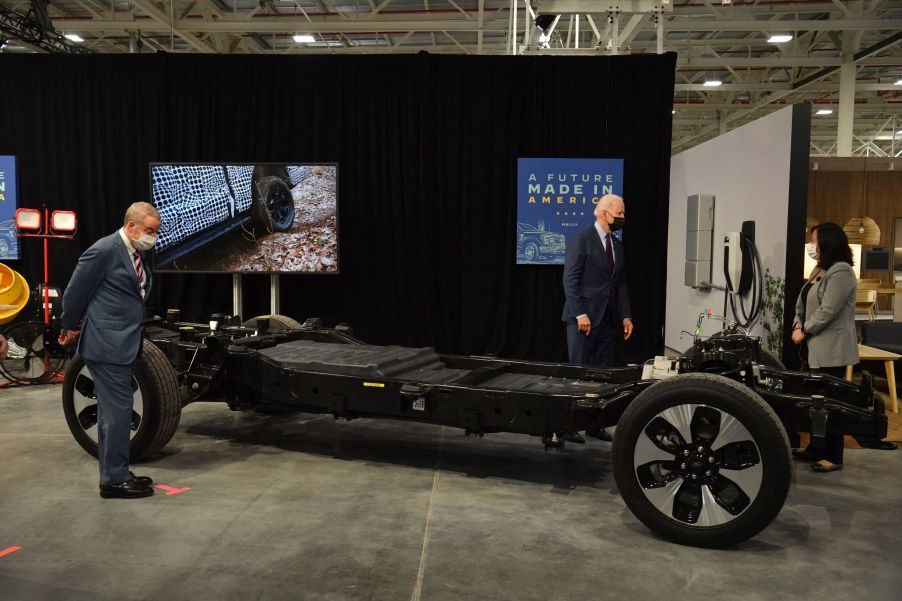
President Biden’s EV Plan Makes Battery Recycling a Priority
President Biden’s administration has been pushing hard to make EVs more available to the average American consumer. So far, the plan of action has featured things like monetary incentives and starting to electrify the government’s vehicle fleet. Now, though, Biden’s strategy is about to diversify via another tactic: boosting EV battery recycling.
According to the Biden administration, EV “battery recycling needs to be a priority,” The Drive says

For the last 100 days, Biden administration officials have been reviewing the US’s supply chains “in key areas,” Reuters reports. And one of those key areas is EVs; specifically, their batteries.
Modern EV batteries use lithium-ion chemistry, but they rely on more than just lithium. Metals like copper, nickel, and cobalt are also important building blocks, The Drive explains. And because the US is one of the biggest EV markets in the world, these materials are in high demand.
Increased mining and refining operations could meet this demand. But as you’ll soon see, that comes with serious drawbacks. Plus, Biden plans to use mines from allied nations to supply EV battery materials, Reuters points out. That puts limits on both the potential supply and the supply rate.
However, it’s not just high demand that’s leading the Biden administration to prioritize EV battery recycling. All batteries degrade over time as their capacity drops. Enough degradation and the consumer disposes of them. And without proper recycling strategies, the Biden administration estimates over 8 million tons of battery scraps will be dumped in landfills by 2040. Those scraps, too, carry a heavy cost.
Recycling an EV battery saves the environment and potentially consumers’ money

As we’ve explained before, mining and refining EV battery materials, especially cobalt, comes with extensive costs. Not just monetary ones, but environmental and human ones, too. And that 8-million-tons-worth of scrapped batteries? That’s an environmental and health disaster waiting to happen.
Increasing EV battery recycling, therefore, has several perks. For one, it cuts down on how much fresh material needs to be mined. According to a recent life-cycle assessment, recycling EV batteries could reduce fresh copper demand by 55%, Reuters reports. The same LCA also found recycling could reduce lithium mining needs by 25%, and nickel and cobalt needs by 35%. And less mining means less environmental damage. Plus, it means the US isn’t as reliant on external suppliers.
Secondly, recycling old EV batteries could reduce the cost of new ones. Not just by reducing mining costs, but also because the used materials are already in a purified state. And because recycling facilities aren’t tied to specific geographic locations, transportation costs would likely also be reduced. The result is a cheaper battery.
More details on the new initiative will be available soon
As of this writing, the Biden administration hasn’t revealed the specific details of its EV battery recycling push. However, officials plan to release more information on Friday, June 9, 2021, when the 100-day reviews wrap up.
It’s worth noting that the private sector has already started promoting battery recycling efforts, The Drive points out. For one, Tesla already recycles its batteries. And China’s Ganfeng Lithium Company is planning to build a recycling facility in Mexico specifically to supply the US with recycled metals. But having the government actively involved could lead to other suppliers accelerating their own recycling programs.
The end goal of all this is to make EVs the vehicle majority on US roads by 2030, Reuters explains. That means making them more affordable and environmentally sustainable. This emphasis on battery recycling seems like a solid step in that direction.
Follow more updates from MotorBiscuit on our Facebook page.


